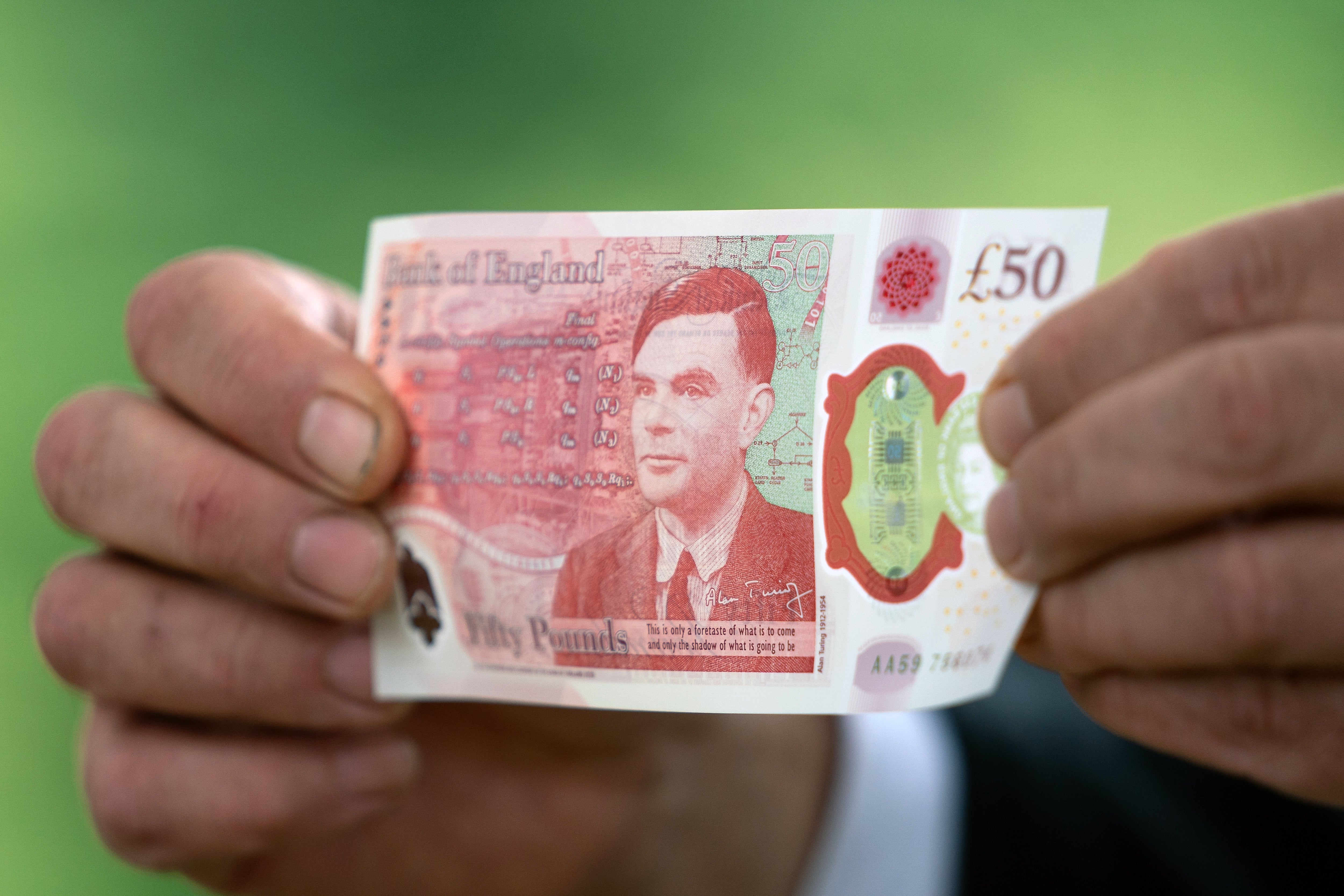Putting Alan Turing on the £50 note doesn’t mean that the government cares about LGBT+ youth
For the government, it’s much cheaper to elevate a gay man who is famous and dead, than to support LGBTQIA+ people who are unknown but alive, writes Nathan Kiley


Today – 23 June – on what would be his 108th birthday, Alan Turing appears on the new £50 note. This is an extraordinary act of public reclamation for a scientific genius and war hero who was criminalised for his homosexuality, and who consequently ended his own life aged 41. The government also recently announced that the replacement for the Erasmus Scheme for international student exchanges will be named the Turing Scheme, in his honour.
It is wonderful news that the Enigma code breaker and inventor of machine learning is finally being honoured for his achievements. But it remains a tragedy that such a brilliant man was driven to suicide, with his career and reputation in ruins, when he still had so much to contribute to the world.
Turing’s sentence, in 1952, at the age of 39 for the crime of sexual intercourse with another man, included being forced to undergo what would now be described as gay conversion therapy: he was required to attend sessions with a psychotherapist who was authorised to use verbal and physical abuse to “dissuade” patients of their homosexuality.
Seventy years later, making the show Topsie Redfern’s Crystal Balls, about growing up as a queer kid in the North of England in the 80s and about my great grandmother, who was closely connected to Turing, has raised a lot of questions for me and my co-writer about what has changed for LGBTQIA+ people, and what has not.
Of course, thanks to the courage of generations of activists, much has improved since the legalisation of homosexuality in 1969. But while Turing’s face now makes up part of the most valuable piece of currency in the UK, the legacy of austerity has left UK LGBTQIA+ services in ruins. 24 per cent of all UK homeless young adults cite their sexual orientation as a reason for being forced to leave the family home, and nearly 15,000 hate crimes were committed in 2018/19 against people because of their sexual orientation.
Suicide rates in these communities are still vastly higher than among straight people, and in many cases, LGBTQIA+ people have experienced discrimination from healthcare staff that has prevented them from accessing the support they need. For the government, it’s much cheaper to elevate a gay man who is famous and dead, than to support LGBTQIA+ people who are unknown but alive.
In my show, we also interrogate the legacy of Section 28 – we were both at school when this legislation banning LGBTQIA+ references in educational institutions was in force. For people of all sexual orientations who grew up during this decade of erasing the history and legitimacy of queer lives and queer families, Section 28 has cast a long shadow.
My drag alter ego, Topsie Redfern, regularly performs with Drag Queen Story Time, an international organisation that has drag artists go into schools and libraries and read stories to children about equality and kindness. This work has been met with abuse, pickets and death threats. In our own childhoods, it would have been illegal for a teacher to read a story featuring, say, a happy family with same sex parents. Now, it’s just incredibly unsafe to do so.
Crystal Balls was created in response to this. It is a piece of drag storytelling for adults, that explores an unspoken family history, and seeks to counter UK legacies of homophobia with joy, with kindness and with conscientious camp.
Turing’s work breaking the Enigma code – an intervention that saved hundreds of thousands of lives – was not known during his lifetime because his work was subject to the Official Secrets Act. The magistrate who sentenced Turing at Chester Court, Manchester had no idea that the man in the dock was a genius and a hero.
Now, it’s not enough to only elevate someone we know is a genius. And if as a society we value genius more than we value humanity, then we’ll have to treat every member of any oppressed minority as if they might be a genius, for change to happen. Far better to acknowledge that, even if that person is not a genius, they still deserve to live in dignity and respect, and to have their stories told.
Nathan Kiley is the co-creator and performer of Topsie Redfern’s Crystal Balls, which opens on 23 June at the Brighton Fringe
Join our commenting forum
Join thought-provoking conversations, follow other Independent readers and see their replies
Comments